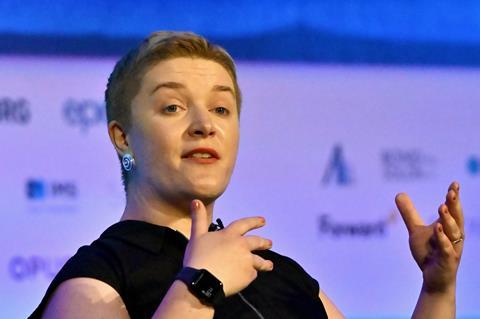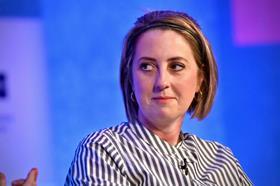London’s still number one. That was the message the City’s legal establishment sought to convey in 2019 when, in the face of apparent competition from commercial courts from Astana to Amsterdam, it founded London International Disputes Week. Judging by the record turnout at the fifth such event – 7,000 delegates from 102 different jurisdictions – the message has sunk in.
But this is not a time for sitting on laurels, the lady chief justice gently reminded delegates, pointing to the need for London to learn from elsewhere in the face of looming changes in the dispute resolution landscape. And the conference theme, ‘global challenges and opportunities’, featured plenty of examples of both.
Opportunities include a booming competition group claims scene and what was described as a dramatic shift in the reach and scope of so-called ESG claims, covering issues from human trafficking to climate change. ‘These are issues that are genuinely global in their reach and application,’ Blackstone Chambers’ Shaheed Fatima KC said, noting that the public as well as the private sector would need to brace themselves for actions.

Topping the list of challenges, inevitably, was technology. ‘AI is not going away,’ said Minesh Tanna of Simmons & Simmons, who chairs the Society for Computers and Law’s AI Group. The message was hammered home in a video address by futurologist and author Professor Richard Susskind. He pointed out that, by the end of the decade, the technology underlying today’s already scarily plausible large language models would have increased its power 300,000-fold. ‘There is no finishing line in this race,’ he said.

Maitland Chambers’ Racheal Muldoon was the first to bring up AI’s effect on the billable hour: essentially, it will abolish it. Rather, the future lies in ‘creative solutions’. ‘Clients will expect us to innovate in AI, not in five years’ time but now,’ she said, adding on a more optimistic note: ‘AI will only replace the lawyers who fail to embrace it.’
A more parochial challenge is the strange limbo in which the litigation funding sector has found itself in the UK following the Supreme Court’s judgment in PACCAR and the remedying legislation’s failure to survive election wash-up. However a session on the topic, chaired by Julian Chamberlayne of Stewarts, found elements of consensus between defendant lawyer Helen Fairhead of Norton Rose Fulbright and group claimant specialist Tom Goodhead of Pogust Goodhead.

Both agreed that the litigation funding bill had been a fair response to the PACCAR verdict. However, on the question of the regulation of third-party funding, Fairhead floated concerns about the current ‘claimant-focused’ debate. These include the impact of litigation on UK plc. ‘More litigation funding means more litigation,’ she said, pointing to the risk of capital being diverted away from areas such as R&D. ‘That perspective is not really coming through in the debate.’
Resource consequences apply to the judiciary, too, Mrs Justice Cockerill chipped in, citing the burden created by ‘over-pleading’. Another issue, she said, is the inflationary effect of big claim costs spilling over to other cases, potentially reducing access to justice for individuals and small businesses.
Goodhead conceded that, with a huge influx of litigation capital seeking a home, ‘you can see some very poor cases being funded now’. There was even consensus on costs recovery. ‘As a matter of principle it’s hard to say the funder should not be liable for adverse costs,’ Goodhead said. ‘It’s pretty irrefutable.’
And should successful claimants be able to recover all their funding costs? For Fairhead, it was another question of balance. ‘This is another layer of risk, which defendants, who didn’t ask to be sued, are asked to assume.’ The key to fairness is disclosure, she suggested.
If Susskind is to be believed, technology will create the possibility of side-stepping disputes altogether. ‘The holy grail is systems that can predict legal risk, because that’s what the client really wants,’ he suggested – without predicting a timescale for when that might happen. But, likening AI-powered dispute avoidance to preventive medicine, he pointed out: ‘What clients want is a fence at the top of the cliff rather than an ambulance at the bottom.’
London’s place in that brave new world can only be a matter for speculation.
Helen Fairhead




































2 Readers' comments